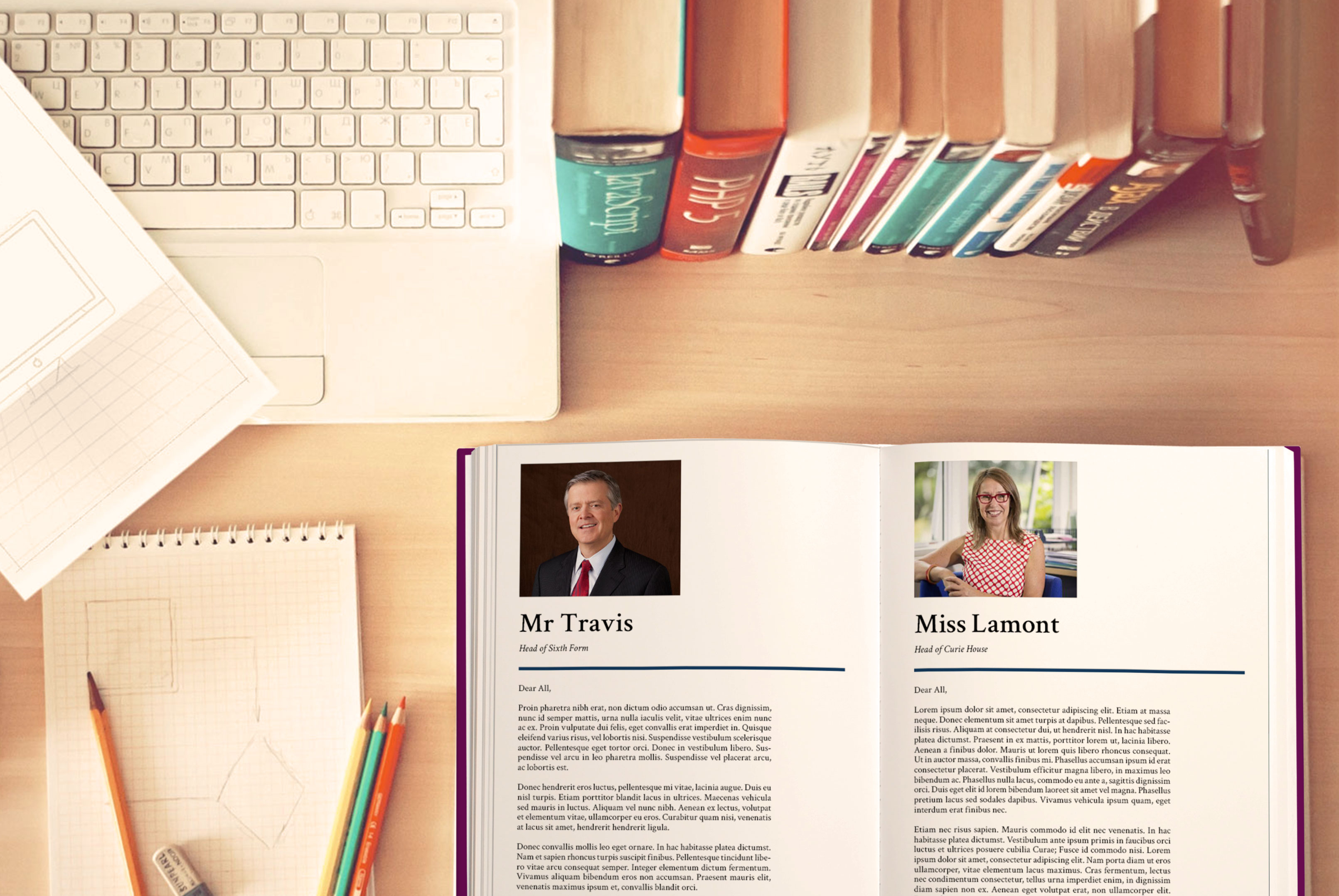Out of all of the articles that we’ve seen in your yearbooks, there’s one article that features in almost every book – a letter from a teacher.
A message from a teacher, head of house or head of year is a great way to pay tribute to your teaching staff, and a chance for them to say goodbye to your year group, and impart any last pieces of wisdom before you leave.
We’ve seen hundreds (maybe even thousands) of great letters over the years, so we’ve rounded up our favourite tips for making the process as easy as possible.
Set a deadline
You’ll have yearbook deadlines, essay deadlines and UCAS deadlines – this is your chance to turn the tables and set one for your teacher. When you speak to your teachers about creating a book, mention that you’d love for them to contribute a letter early on. Speak to your committee and work out when you’d like to have all your content from teachers sorted by, then stick to it, and keep reminding your teachers!
Try and avoid periods that you know will be busy (like exam season and the end of term), and set two deadlines – an earlier one for your teachers (that they think is the final deadline), then a later one for you – just in case you have to chase anyone.
It’s also a good idea to not give your teachers too much time. It’s unlikely that anyone would begin to write something six months before it’s due – three weeks to a month is ideal!
Break with the format
While a ‘letter-style’ message from your teachers is a well-deserving staple of many books, some of the most unique messages from teachers have taken a different route. We’ve seen teacher responses to drunk emails from students, compilations of teacher tweets and fake emails used as replacements for the traditional teacher messages. A letter could be just the starting point – some teachers are happy to contribute much more.
If you want to stay fairly traditional, work with your committee to put together a list of questions for your teachers to answer. It will switch up the format and break up the page. You could even use their responses and work them into a more interview-style article – a great chance for the aspiring journalist in your class to apply their skills.
Likewise – interview your teachers! If there’s a head who you know is busy, and might find it hard to pin down to a deadline, set aside some time to interview them instead. There’ll be no chasing them up, and if there was something in particular you’d like them to talk about, you can ask them directly. Look to magazines and papers for inspiration – done right, a parody interview could also be great.
Keep it short
Our final tip – word count! Although the system is based around how many lines are on a page, it’s never a bad idea to set your teacher a 300-350 word limit. It makes the job of writing a message seem way less intimidating, and ensures that the letter won’t spill over your template or ruin your page count!


